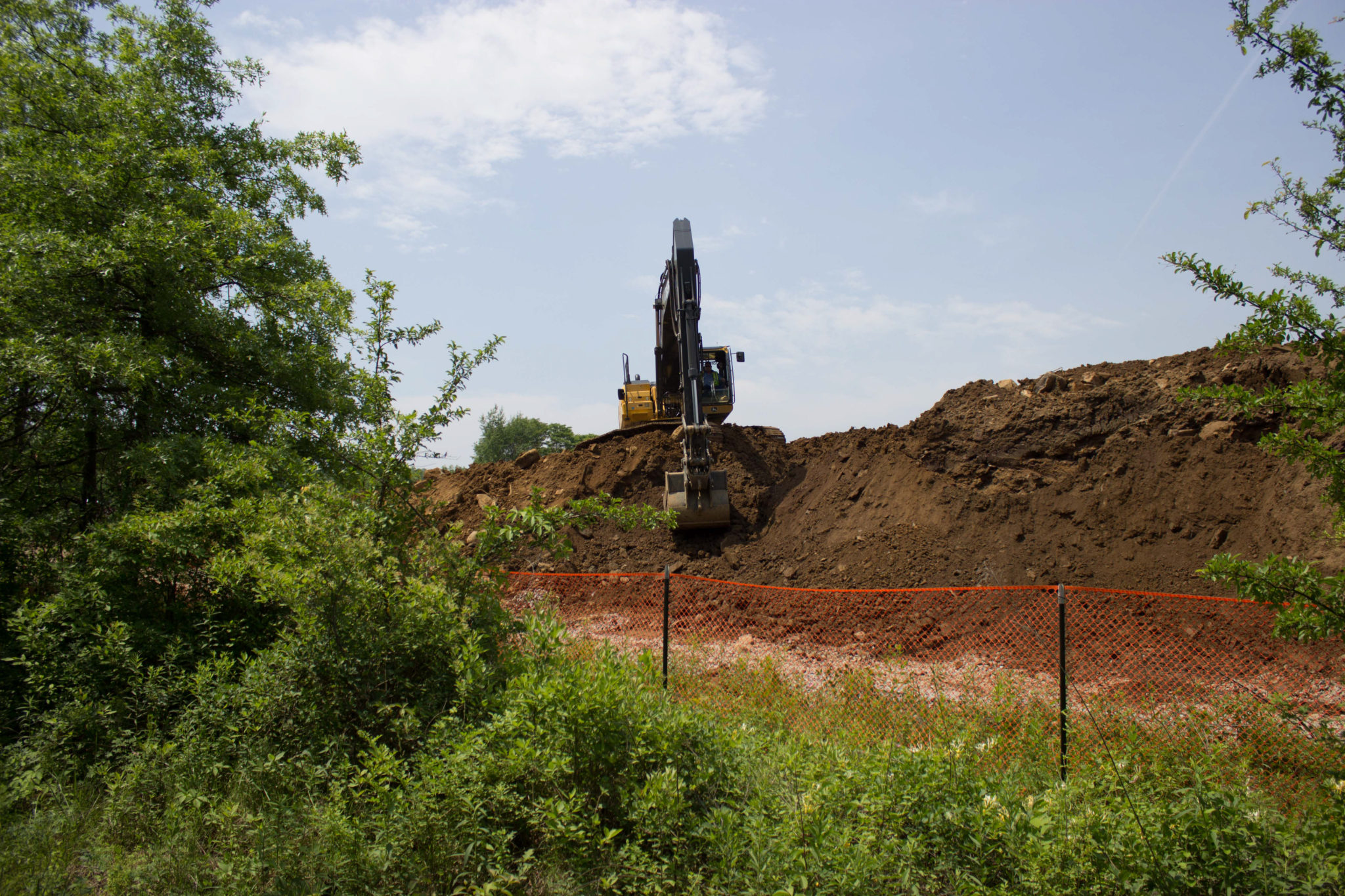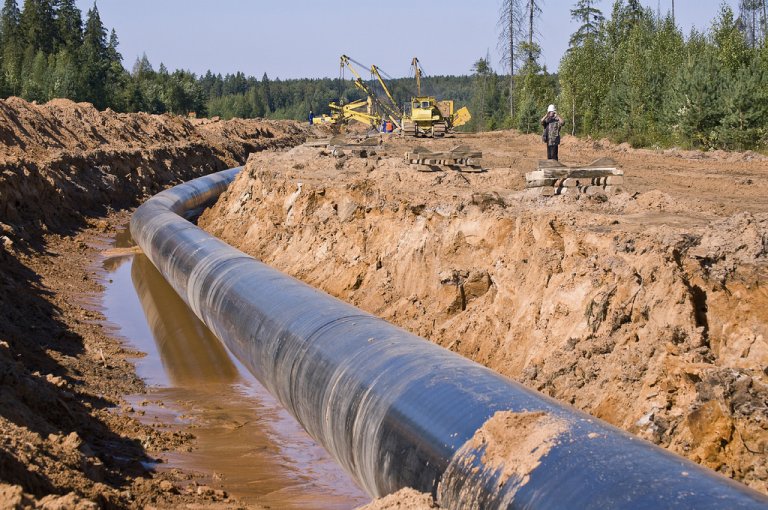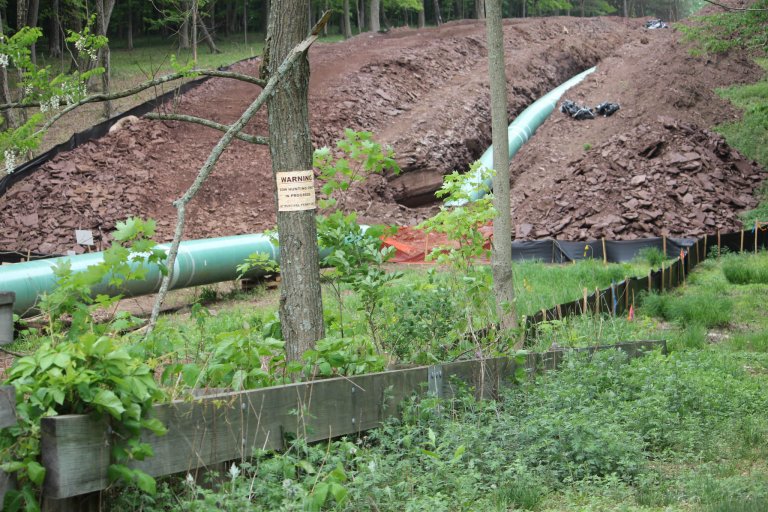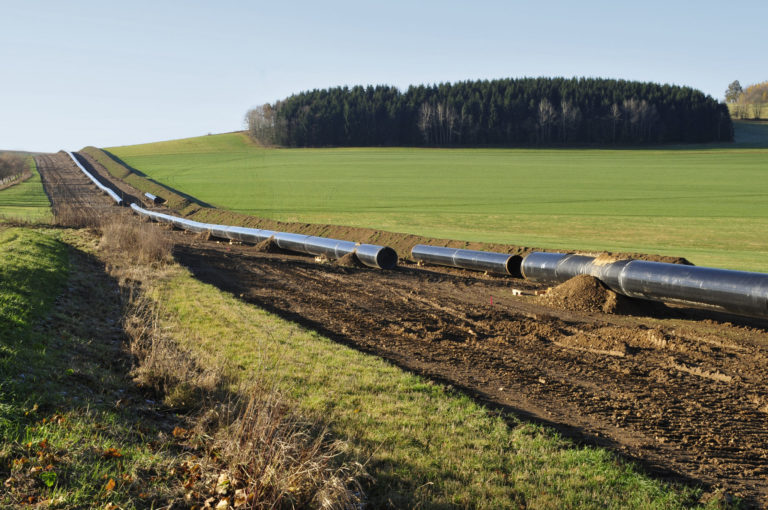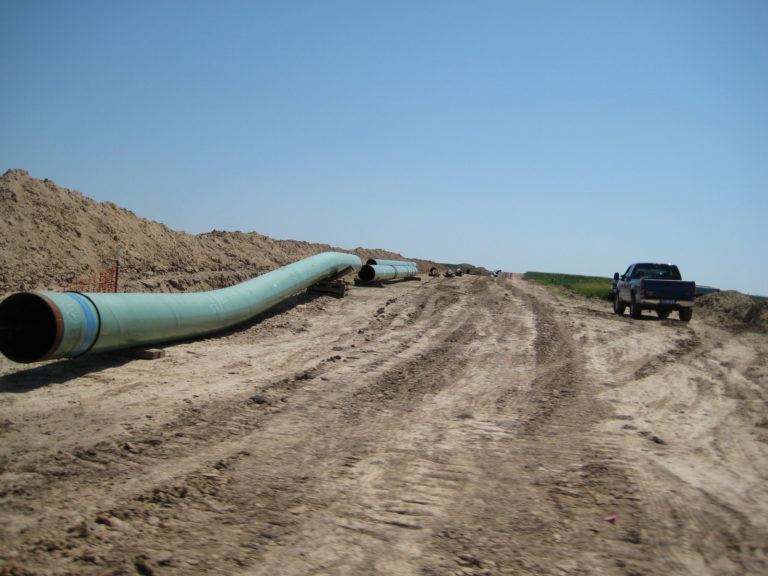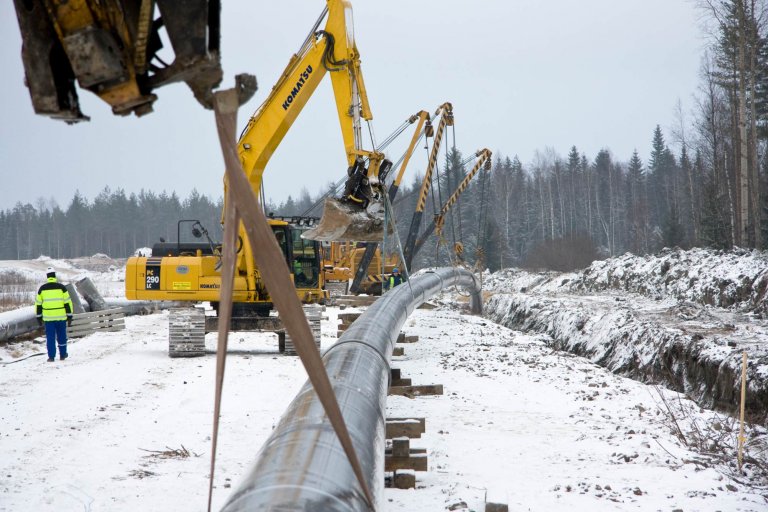 For more than thirty years, natural gas has been promoted as a “bridge fuel” to address our energy needs until solar, wind and other forms of carbon-free, renewable energy can fully run our economies. But no matter what the gas industry says, natural gas is a fossil fuel that contributes to climate change. Moreover, the construction of new natural gas pipelines is damaging to water and wildlife habitats.
For more than thirty years, natural gas has been promoted as a “bridge fuel” to address our energy needs until solar, wind and other forms of carbon-free, renewable energy can fully run our economies. But no matter what the gas industry says, natural gas is a fossil fuel that contributes to climate change. Moreover, the construction of new natural gas pipelines is damaging to water and wildlife habitats.
While the combustion of natural gas to generate electricity releases less carbon dioxide (CO2) than burning coal, gas is still a potent greenhouse gas. Producing, transporting and using natural gas releases considerable amounts of carbon into the atmosphere in the form of methane, which leaks from valves and pipes throughout the process. In fact, methane is more than 100 times more potent at trapping heat than CO2. Although methane degrades faster in the atmosphere than carbon dioxide, as a greenhouse gas, methane still has an impact that is 84 times more potent than CO2 after 20 years and 28 times more potent after 100 years.

The construction of natural gas pipelines can damage our rivers, streams and drinking water. In most cases, pipelines are built by ripping trenches through stream bottoms with backhoes and other heavy equipment. Doing so can release a tremendous amount of polluting sediment into our water bodies, smothering all manner of aquatic life. Pipeline builders clear wide swaths of trees and other vegetation, which destroys habitat for birds and other wildlife, introduces non-native invasive species and removes shading over streams that keeps water temperatures compatible for fish.
Interstate pipelines are regulated by the Federal Energy Regulatory Commission (FERC), which has the authority to grant eminent domain authority to pipeline companies to condemn private and public property. Even for projects that have been approved by FERC, however, pipeline builders must still secure water quality certification from the New Jersey Department of Environmental Protection (NJDEP) under section 401 of the federal clean water act.
Energy projections from the U.S. Energy Information Administration suggest that New Jersey does not need more natural gas pipelines. The fact is that there are smarter, cleaner solutions to our energy needs, like solar, wind and energy conservation.

